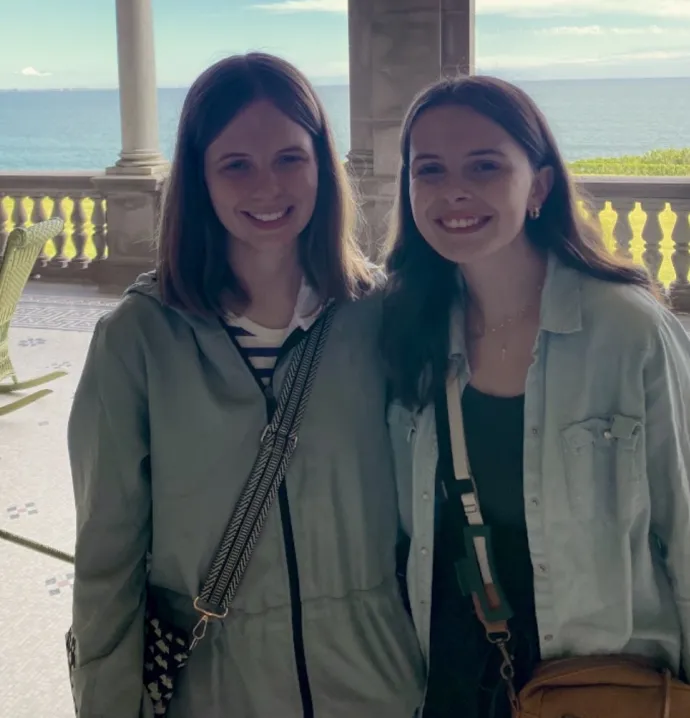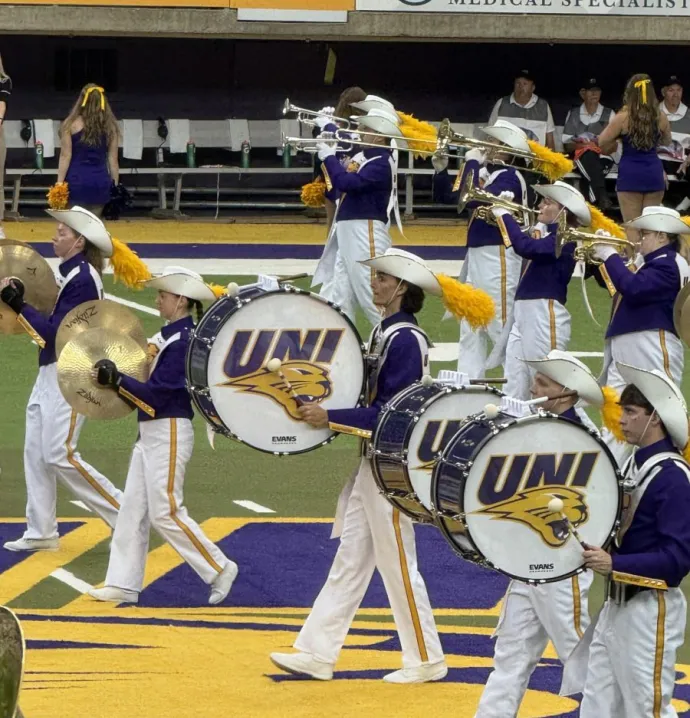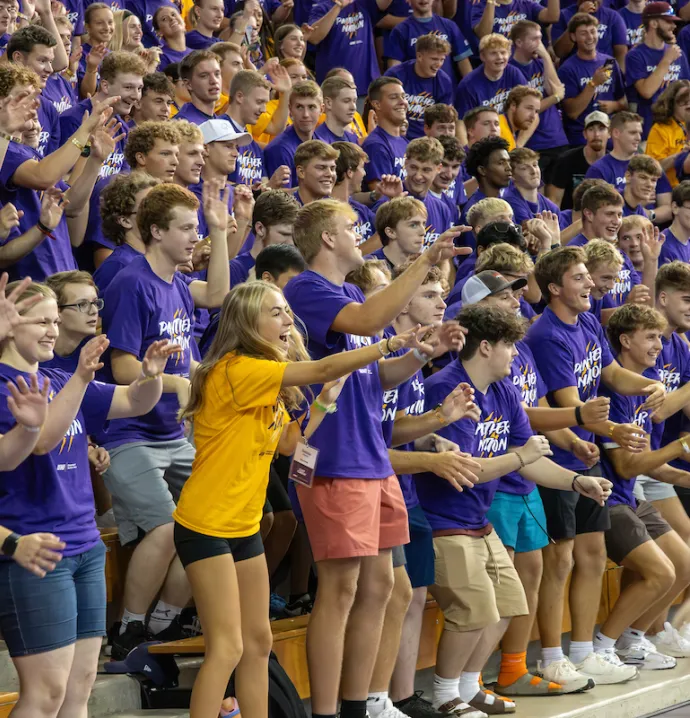UNI alum helps address food insecurity in the wake of COVID-19
UNI alum helps address food insecurity in the wake of COVID-19
Food banks across the country experienced a surge in demand when coronavirus first hit the US and that need hasn't let up. In the Cedar Valley, UNI alum Mara Warnke '18 is helping to make sure families stay fed throughout this uncertain time.
Warnke is pantry services manager for the Cedar Valley Food Pantry (CVFP) in Waterloo, a program of the Northeast Iowa Food Bank (NEIFB). After coming on as a part-time pantry services assistant in 2018, she moved into her role as manager in March — just as coronavirus was first starting to make its way to Iowa.
The experience has been a wake-up call for the Clarion native. At UNI, Warnke majored in Leisure, Youth and Human Services (now Recreation, Tourism and Nonprofit Leadership) and always planned to work at a nonprofit. But she didn’t realize how widespread food insecurity was until she got her job at CVFP.
"When I first started ... I was a little bit naive. I didn't know there were that many people that were food insecure in the area," she said. "It’s been really eye opening just seeing what the community is facing. It’s definitely a tougher time for more people ... [and] an interesting time to be taking on more of a leadership role."
Warnke had the chance to share some of the lessons she’s learned in her new role in a piece she wrote for Newsweek.com at the end of April. In the piece, she reflected on the increase in demand due to coronavirus, and how important food banks are to communities, especially during times of need. “If we didn't provide this food, I honestly don't know where they would turn,” she wrote in the piece.
CVFP typically serves around 3,000 families and according to Warnke, NEIFB saw a surge of about 20% across its local food pantries when coronavirus first hit. Part of Warnke's job is to oversee volunteers, so when service numbers reached a peak, during the first two weeks of COVID-19 panic, Warnke helped execute the shift to curbside service. This requires extra volunteers to pre-pack boxes that can be loaded into clients' cars with minimal contact.
"There's a lot of people back there [in our warehouse]. It takes a lot of man-hours to pack all those boxes," she said. "People can get their groceries super fast when they pull up, but for us to pack that box ... it takes a lot more hours behind the scenes."
Many volunteers still showed up to help address the increased need — the National Guard was even deployed to help — and donations increased slightly, as well. Warnke said that the community support has been inspiring, despite the uncertainty of the pandemic.
"The community has been just really supportive during this time," she said. "We couldn’t function if we didn’t have the community support. It really helps us serve so many more people."
She recalled one particularly moving moment when a young woman who was seeking support at the food pantry gave Warnke a $5 cash donation.
"To see somebody who may not have much to give and they're still giving, that's huge," she said. "There's been a lot of generosity in the community. It's really beautiful to see."
The UNI community has also done their part — every year, UNI celebrates Martin Luther King Jr. Day with a day of service in support of NEIFB. This year, the event had grown so much, it moved from its normal spot in Maucker Union to the UNI-DOME, and volunteers packed 48,000 backpacks for the food bank’s backpack program.
“If we had staff that had to do all those backpacks, we wouldn’t have time to do other things. That in itself is huge,” said Warnke.
Warnke's own positive attitude stands out among her coworkers. Rhonda McBride, service insights manager for CVFP, has worked closely with Warnke since she was first hired and said that Warnke's passion for helping others helped her stand out right away.
"From her first interview, we could tell she was very motivated and had a very caring personality,” said McBride. "During the time I've spent with Mara, I’ve seen her strengthen her leadership abilities and build strong relationships with clients as well as co-workers. She has a great work ethic and gives her best to her job."
That passion for helping other people is what motivates Warnke — and it's something she learned from UNI.
"I genuinely want to help people," she said. "[At UNI] I was shown the importance of community and having people around you that can support you. Also, on the flipside, being that person that can help somebody else, too — thinking, 'What can I do to help other people and build community?' I learned that when I went to college."
Her experience working at CVFP during this time of high demand has been just as transformative. The job helped Warnke understand the scope of food insecurity in her own community — and taught her an important life lesson.
"People just started telling me about what they were going through and I was like, 'Wow, this is a serious need. This is a big deal,'" she said. "You never know who’s going to walk through the door. You see all kinds of people here, all kinds of age groups. Some people have PhDs … it’s not the stereotypical people who you think need help with food because they didn’t get themselves a good job. You can never judge a book by its cover."




